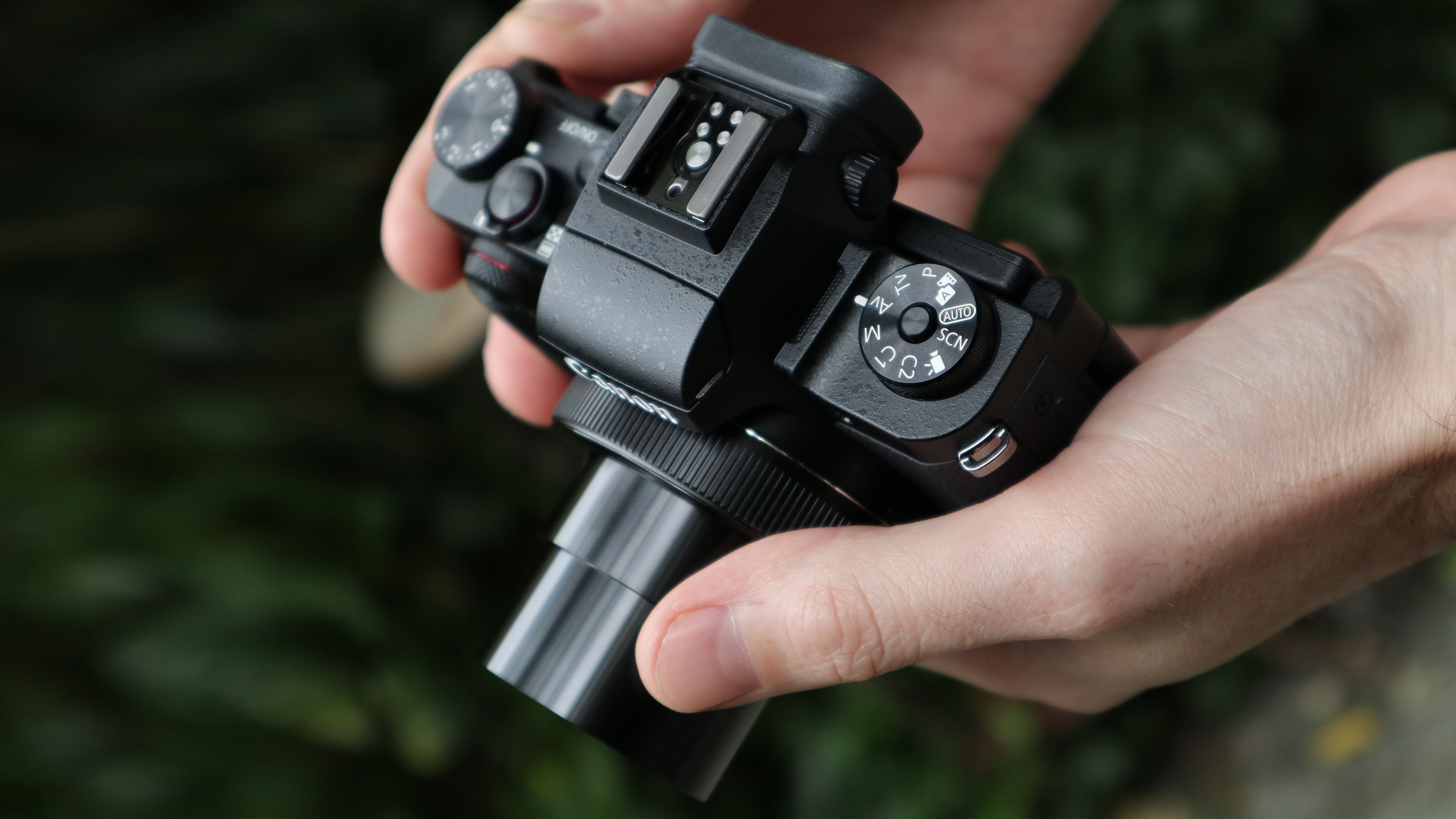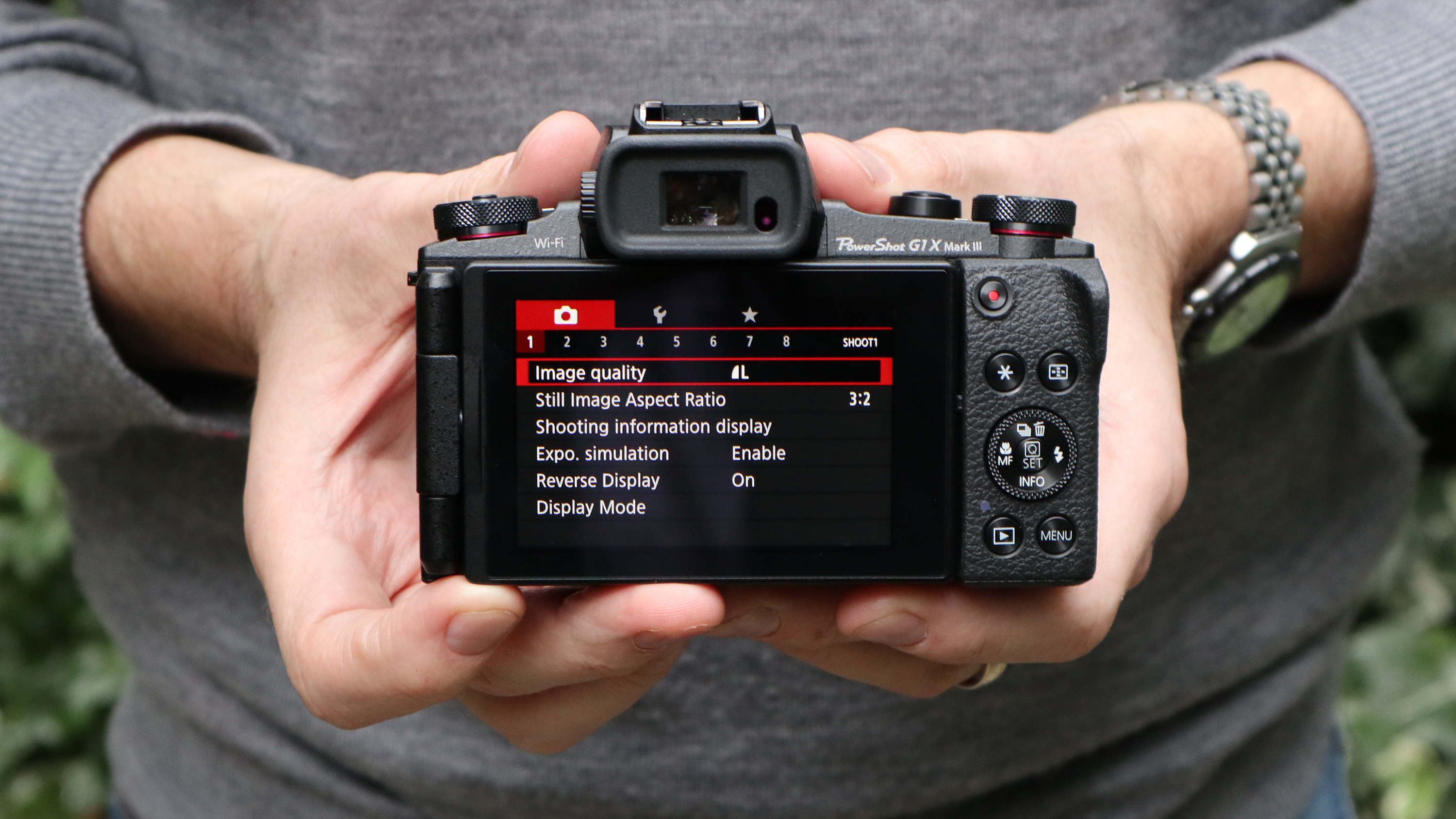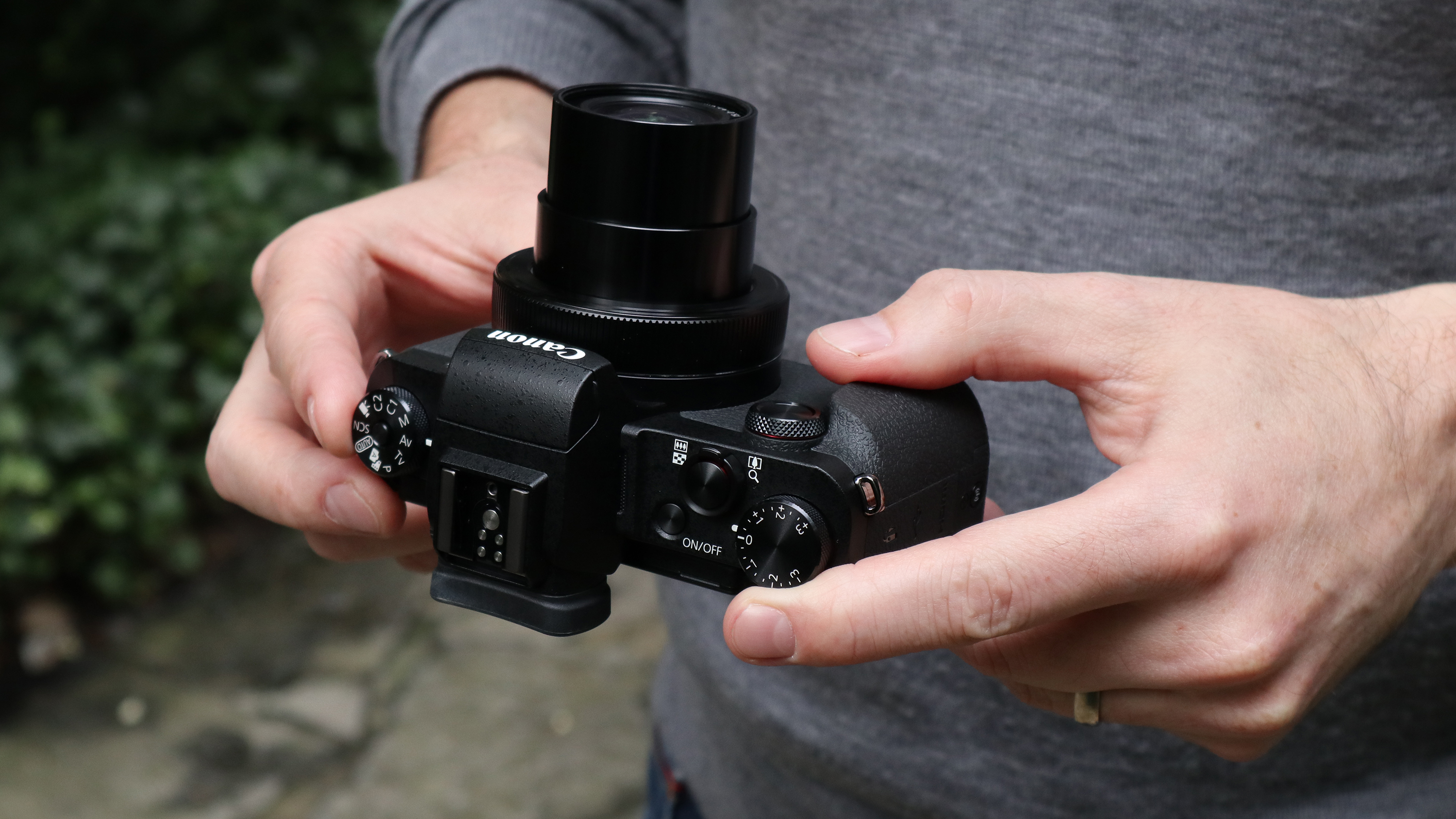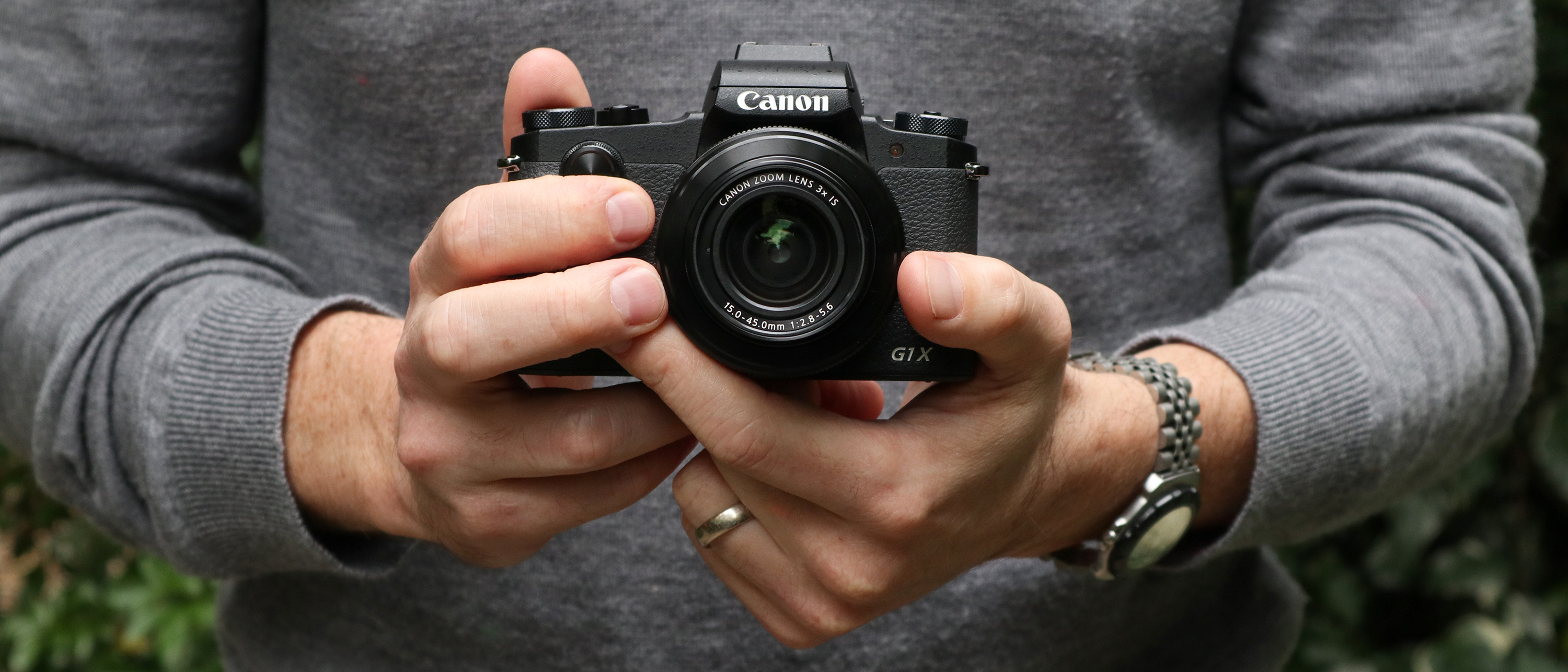TechRadar Verdict
The PowerShot G1 X Mark III is the first APS-C format compact camera to feature a zoom lens, making it worthy of interest. It's pricey, but Canon may just have hit the sweet spot for enthusiast photographers looking for a compact partner for their DSLR kit, or for those looking for a versatile all-in-one solution that delivers DSLR-quality images.
Pros
- +
APS-C sensor in a small body
- +
Built-in EVF
- +
Refined touchscreen interface
- +
Compact size
Cons
- -
Limited zoom range
- -
Battery life restrictive
- -
Only 1080p video capture
Why you can trust TechRadar
The Canon PowerShot G1 X Mark III is the latest in a long line of enthusiast-focused compact cameras, designed for photographers looking for something to complement their DSLR, or for those looking for a versatile alternative to a DSLR in a relatively compact body.
The original PowerShot G1 was launched in 2000, and for a while that camera and its successors were the obvious choice when it came to choosing an enthusiast compact.
But with rivals like the RX100 series from Sony, the LX range from Panasonic and Fujifilm's X100 line, Canon's flagship PowerShot compact camera has struggled to stand out from the crowd in recent years. And it would be fair to say the outgoing G1 X Mark II, with its unique 1.5-inch sensor, missed the mark, so Canon is throwing everything at the G1 X Mark III.
Features
- APS-C CMOS Sensor, 24.2MP
- 3.0-inch vari-angle touchscreen, 1,040,000 dots
- 1080p video capture
Where the G1 X Mark II used a 1.5-inch sensor, the G1 X Mark III uses a 24.2MP APS-C CMOS chip that's some 36% larger; it's nearly identical to the one in Canon's EOS 80D DSLR, delivering an ISO range from 100 to 25,600.
This is hooked up to Canon's latest DIGIC 7 image processor, allowing the PowerShot G1 X Mark III to not only handle data that much quicker than the older model, but promising to reduce the need to edit images thanks to an Auto Lighting Optimizer and Diffraction Correction.
The G1 X Mark III sports a slightly more modest zoom range than the older model, at 24-72mm compared to 24-120mm, and has a f/2.8-5.6 aperture range. It also offers a close-focusing distance of just 10cm, while the lens features a nine-bladed aperture, which Canon says will produce pleasing background blur.
To minimize blur caused by camera shake, the PowerShot G1 X Mark III features a dual-sensing image stabilization system that can compensate for movement by up to four stops.
There's also five-axis Advanced Dynamic IS for video recording. While we're touching on video, the PowerShot G1 X Mark III can shoot 1080p video at up to 60p – there's no 4K video capture here.
The PowerShot G1 X Mark III also gets a panoramic sweep mode, allowing you to capture a 67MP image (24,064 x 2800 for horizontal shots, 16,000 x 4200 for vertical images), with the camera automatically stitching the panorama as you pan the camera.




The PowerShot G1 X Mark III features a built-in EVF – something that was missing from the Mark II – with a 2.36 million dot 0.39x Organic EL display, while there's a 3.0-inch vari-angle touchscreen display with a resolution of 1.04 million dots, identical to the screens on the latest EOS DSLRs, such as the EOS Rebel T7i / 800D.
There's Wi-Fi, NFC and always-on Bluetooth connectivity to enable you to remotely transfer images from your camera to a compatible smart device. Canon's Camera Connect app also lets you wake the camera from its slumber (provided you haven't turned the camera fully off), as well as browse photos and operate the camera remotely.
Save on top-quality cameras and accessories with our latest Canon coupons. Find great deals on gear for every shot.
Phil Hall is an experienced writer and editor having worked on some of the largest photography magazines in the UK, and now edit the photography channel of TechRadar, the UK's biggest tech website and one of the largest in the world. He has also worked on numerous commercial projects, including working with manufacturers like Nikon and Fujifilm on bespoke printed and online camera guides, as well as writing technique blogs and copy for the John Lewis Technology guide.

